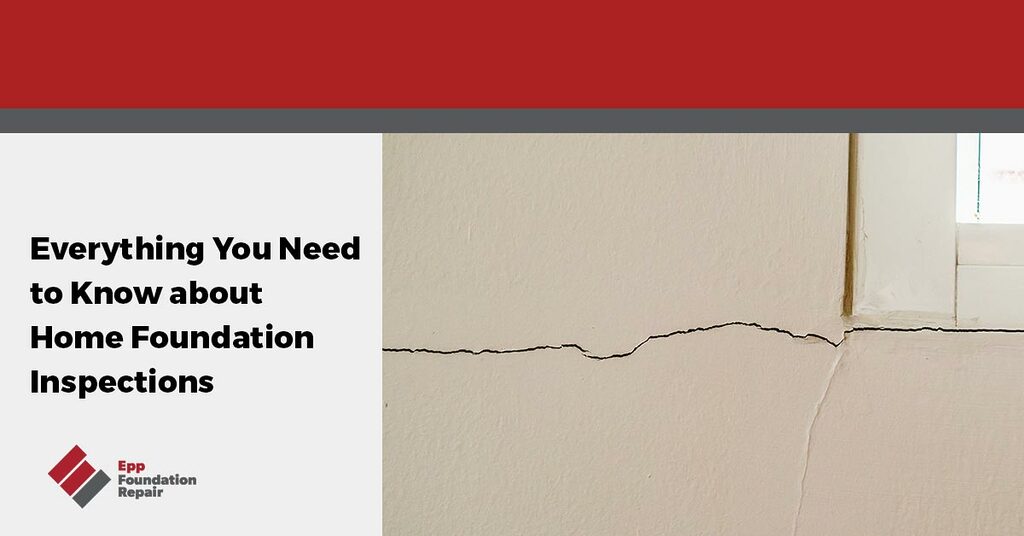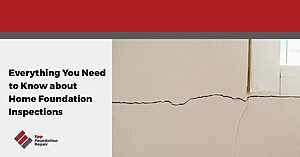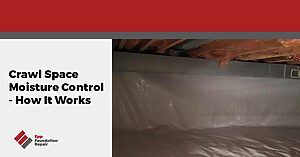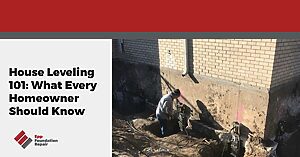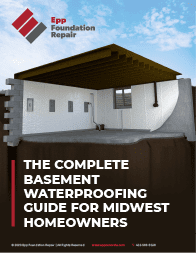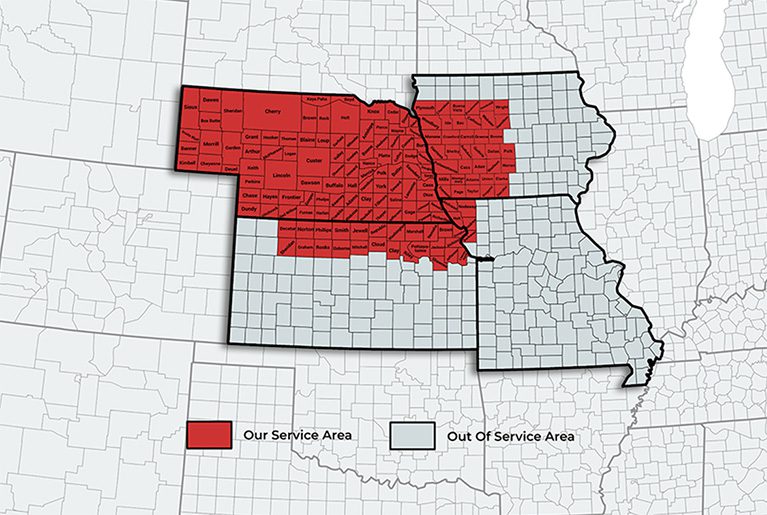Home foundation inspections may seem intimidating to homeowners, but let us assure you there is nothing to be nervous about. In this article, we will answer all your questions, including what a home foundation inspection is, when and why you might need one, what to expect, how often you need one, how much it costs, and how to pick the right repair company. Let’s go!
What Is a Home Foundation Inspection?
A home foundation inspection is a thorough assessment of a house’s foundation by a foundation repair professional to evaluate its structural integrity, identify any signs of damage or deterioration, and determine if any repairs or maintenance are needed. Foundation inspection is an essential part of homeownership, helping to identify and address potential problems early to prevent costly damage and ensure the long-term stability and safety of the property.
When Would I Need a Home Foundation Inspection?
There are many signs that your foundation might be damaged. You should get a home inspection if you notice any of the following signs:
- Windows and doors are sticking – If you notice that your windows and doors are becoming harder to open, then it could mean that your foundation is experiencing differential settlement, causing your home’s framing to shift.
- Wall cracks – If your interior or exterior walls have cracks that seem to be getting more extensive, you may have foundation issues. Look for horizontal or diagonal cracks, large cracks originating from the doors or windows, or cracks on the wall extending to the ceiling.
- Sloping floors – If you see gaps between the floor and your baseboards in sections of your home, or you can place a smooth ball on the floor and it starts rolling on its own, your floors are sloping, which is a common sign of foundation issues.
- Bowed walls – If your foundation’s walls are bowing inward, your home’s structural integrity is at stake and needs to be corrected as soon as possible.
- Musty smell in your basement or crawl space – A musty odor is a sign of mold growth caused by moisture. Any signs of moisture in your crawl space or basement are red flags and warrant immediate attention.
- Frequent flooding or pools of water in your basement or crawl space – If water is continually present in your foundation, there is most likely some structural or drainage failure that must be addressed before more severe damage occurs.
- Cracks in your foundation – If you see cracks along your foundation’s walls or floor, get them inspected as soon as possible to determine whether or not they are structural cracks.
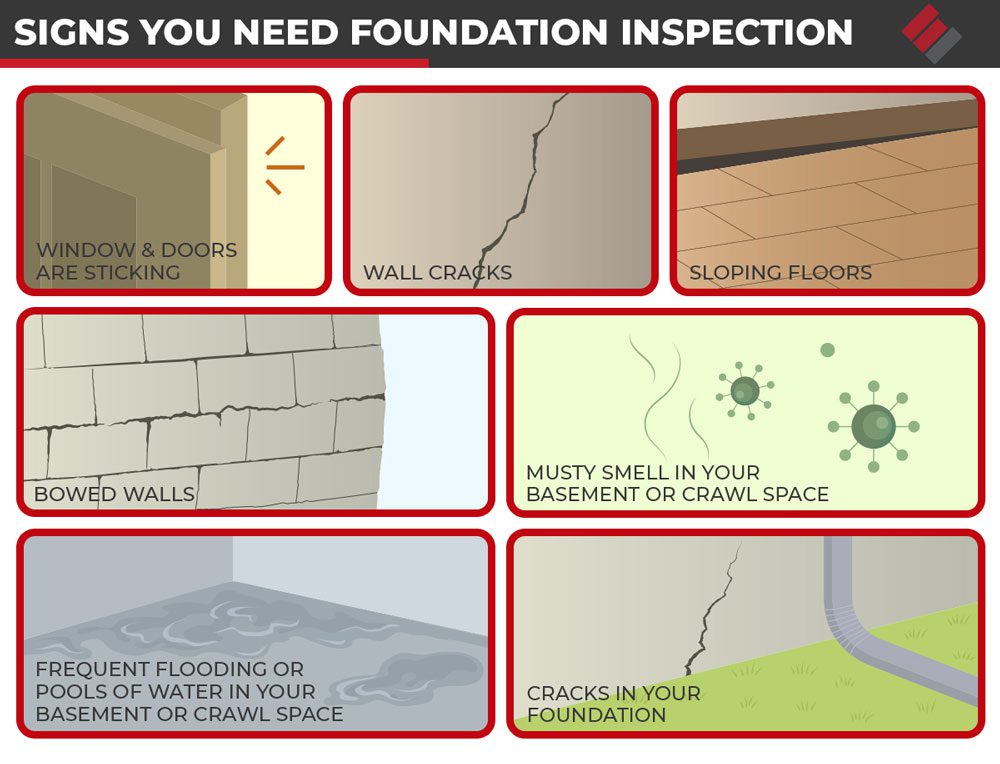
This is not an exhaustive list, but it is a great starting point if you aren’t sure if your home needs a foundation inspection. There are other factors to consider, too, that might warrant an inspection.
- Recent natural disasters – Natural disasters like earthquakes, flooding, and tornadoes can cause sudden damage to your home’s foundation or set off a chain of events leading to foundation damage, like soil erosion or oversaturation. If your home has endured a natural disaster within the last few months, it is wise to schedule a foundation inspection.
- Neighbors with foundation issues – If your neighbors have recently reported foundation damage, your home may also be affected since your home likely lies on the same type of soil, was built using similar construction methods and materials, and endured the same weather conditions.
- Buying or selling a home – Before purchasing a home, it is vital to check the foundation to ensure a sound purchase. If you want to sell your home, being able to include a foundation inspection report that proves your home is structurally sound will expedite the sale and can increase your home’s value.
What Is Involved in a Home Foundation Inspection?
The inspection process can be broken down into three phases:
1. Pre-Inspection – Before the inspection begins, the inspector will start by asking you the reason for the inspection and taking note of any of your concerns.
2. Visual Inspection – The visual inspection involves thoroughly studying your home, foundation, and yard and lasts about 60 to 90 minutes.
- Home: The inspector will create a floor plan of your home by entering each room, taking measurements, and using specialized tools to check the level of your floors. He will also take pictures and document any signs of foundation damage, such as cracks and moisture.
- Foundation: The inspector must access your foundation to check its condition if you have a crawl space or basement. He will review the humidity levels and look for cracks, bowing, rotting wood, mold, and other signs of damage.
- Yard: The inspector will check the grading of your yard and the efficiency of your drainage systems to determine if the foundation is being damaged due to poor drainage and oversaturation of the soil.
3. Post-Inspection – Once the inspection is complete, the inspector will have a scaled drawing of your home’s floor plan and submit a report with his findings, the causes of the damage, and repair recommendations with a cost estimate. The report is typically ready within 24 hours. We strive to take an educational approach and help you navigate the entire process rather than pressure you with pushy sales tactics.
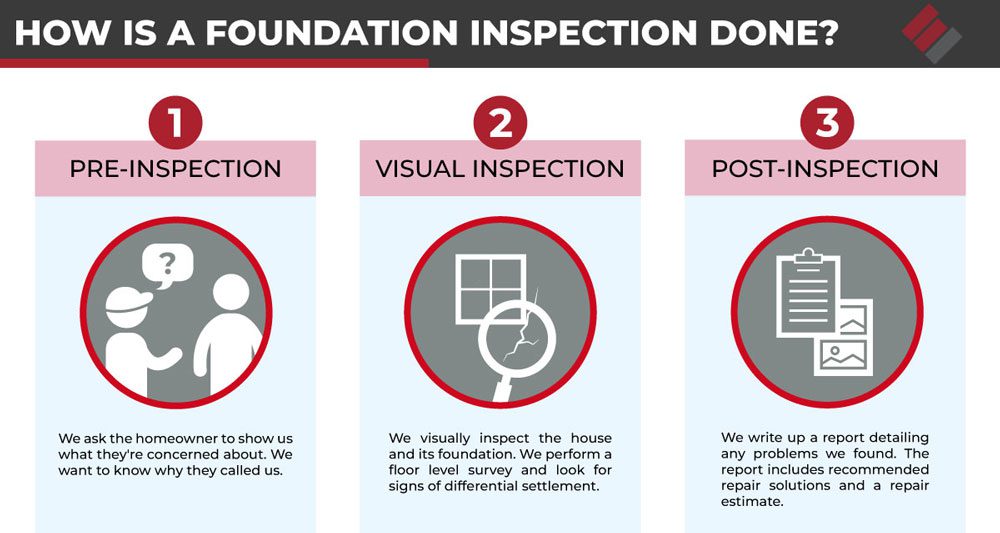
How Much Does a Home Foundation Inspection Cost?
The cost of a home foundation inspection varies based on your location, the size of your home, and whether or not your home has had previous inspections. Many companies offer free foundation inspections, while others charge anywhere from $200 to $350. At Epp, we provide free (see note below) estimates so you can easily access professional advice and gain peace of mind knowing your home is stable.
Note: The inspection is free if it is the homeowner calling and the home or property is not involved in a real estate transaction. Anytime the property needs an inspection as part of a transaction, we charge a fee for that inspection. Starting at $250.00
What Questions Should You Ask Your Foundation Inspector?
Not every foundation repair company is the same, but it may be hard to tell which one to trust. That is why knowing the right questions to ask your foundation inspector and what to research about a company is essential. Try the following:
- How long have you been in business?
- How many foundations have you repaired?
- Are you insured?
- Do I need a permit?
- Do you sub work out?
- What warranties or guarantees do you offer?
- Do you offer financing?
- What can I expect during the repair process?
- Why did you choose this repair solution?
- Do you have any client testimonials?
The more you research a company and ask questions, the easier it will be to weed through repair companies and find the best one. Foundation repair is a costly but essential investment, so choosing a company you can trust for decades to come is vital.
How Often Do I Need a Home Foundation Inspection?
The frequency of home foundation inspections ultimately depends on the conditions affecting your home, such as weather, soil type, and age. If you live in a new construction home with a concrete slab foundation on rocky soil, you may not need a foundation inspection for decades. But if you live in a 50-year-old house with a crawl space foundation that experiences frequent flooding, you may need a yearly home foundation inspection. During your first foundation inspection, ask the specialist for his recommendations. Most homeowners usually do not need an inspection more than once a year to every few years.
If you suspect damage to your home’s foundation, do not hesitate to schedule your free inspection. We have been in business for over 25 years and have repaired hundreds upon hundreds of residential foundations in Nebraska, Iowa, Kansas, and Missouri. We are ready to help.

